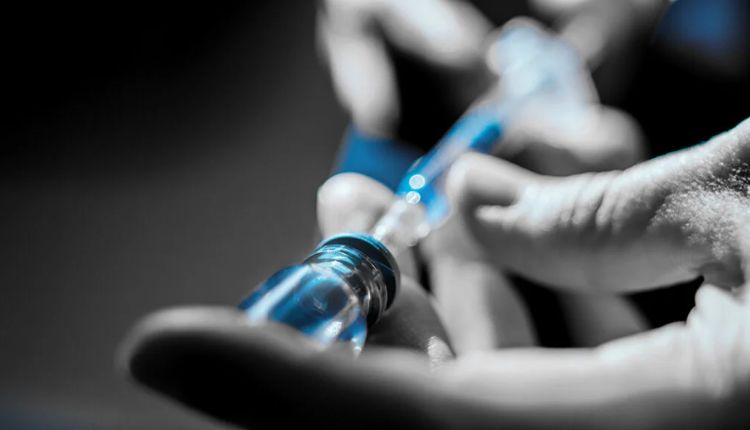What’s the Problem?
It’s normal human behavior to react with suspicion to something new. Unfortunately, it’s also normal for bad actors to take advantage of people’s hopes, pain, and fear. Human growth hormone has been the subject of such abuse. Compare it to atomic energy and take a look at what this treatment can do to change the lives of those who need it.
What Do Hormones Do?
Hormones are special chemicals secreted by the body, and they act as messengers targeting certain tissues to perform necessary functions. While people share the same basic hormones, their levels vary greatly depending on age, gender, and health conditions.
What Is HGH?
Human growth hormone, or HGH, is produced by the pituitary gland, located behind the bridge of the nose deep inside the skull. In children, growth hormone triggers the start of puberty by stimulating the bones to lengthen and harden to attain adult height. It also increases muscle strength and lean body mass while regulating body fat and blood sugar.
Why Do Adults Need Growth Hormone?
In addition to helping maintain body structure in adults, this hormone plays a role in
metabolism, the process by which food is converted into nutrients and energy to be stored or mobilized by the body. Several hormones work as a team to streamline these operations.
Where the Doubt Comes from
It’s human nature to seek a quick fix, especially when it involves financial gain. Scams that play into people’s unrealistic expectations are as old as human history. False promises by unqualified people have damaged the reputation of legitimate medical treatment, like hormone therapy in the following ways:
- Misuse in sports by promoting false benefits
- Overpromising claims to reverse the aging process
- Selling cheap, illegal counterfeit products unapproved by the FDA that are often ineffective and frequently dangerous
- Fear of side effects such as uncontrolled blood sugar, heart problems, and cancer
So, What’s Changed?
Medical science never stops evolving. While rumors and gruesome stories remain common in popular culture, the proven truth is that the quality of medical care continues to advance:
- More accurate testing is available for patients.
- More specialized board certifications mean that more medical experts are available in more locations.
- Microdosing and monitoring techniques have made treatment options easier to target specific problems and to adjust to ensure fewer side effects.
- Improved supervision of patient responses to treatment has become accepted into best practice protocols. In other words, you aren’t left on your own.
- Modern medical care is increasingly focused on each patient’s unique quality of life rather than simply preventing death.
What Does Low HGH Feel Like?
Maintaining good health means that the body must keep more than fifty hormones in balance. Changes in hormone levels show up in different ways. Signs (observable, measurable changes) and symptoms (changes experienced by the patient) of low HGH in adults might include:
- Unexplained fatigue and weakness
- Loss of normal strength, stamina, and muscle mass
- Increased body fat, often deposited around the waist
- Sleep problems
- Slow healing
- Mood issues such as depression, anxiety, and a decreased sense of well-being
- Decreased libido and sexual function
Who Really Needs HGH?
The pituitary gland’s efficiency can be reduced by age, injury, or abnormal growths inside the skull, resulting in Adult Growth Hormone Deficiency (AGHD). The effects of such hormone imbalance can be life-changing. Not everyone needs HGH therapy, and not everyone qualifies. The most effective way to get HGH therapy is to find a local clinic where hormone specialists perform accurate diagnostic testing and monitoring of therapies through safe resources approved by the FDA (Food and Drug Administration).
HGH Testing
Your body is changing every day. Your food and fluid intake change how well it functions, but it’s also affected by how much quality sleep you get, how physically active you are, what other health conditions you deal with, and how much emotional stress you’re experiencing. Various signs and symptoms can result from a combination of many causes.
Because the pituitary secretes growth hormone in pulses, your levels vary during the day. You’ll give several blood samples to present the most accurate and complete picture of what’s happening in your body. Like a detective collecting clues, your hormone specialist knows how to discover the right solution.
Conclusion
Your primary care physician can refer you to a board-certified endocrinologist with experience. The purpose of the first consultation is to learn more about your concerns, your medical history, and your health goals. The next step involves testing to figure out what’s out of balance.
Once an accurate diagnosis is confirmed, your personalized treatment plan is created and adjusted according to needs. A necessary part of successful treatment is long-term follow-up care to monitor for changes.
Benefits for people with Adult Growth Hormone Deficiency include improved muscle mass, less body fat, more energy, and better mental well-being, often within only a few months. Check with your doctor: “Is HGH therapy near me?” If you want to feel good again and perform the way you used to, don’t wait to explore your future!






